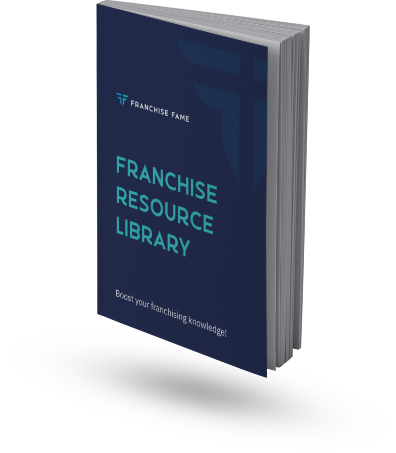Thinking about starting your own business or buying a franchise? Although franchise ownership may seem attractive due to the lower startup costs, you should do your research carefully before becoming a franchise owner. This guide will help you understand how franchises work, what they offer and what they don’t, as well as some legal implications.
Table of contents:
Definition of Franchise
A ‘franchise’ is a licence granted to an independent entrepreneur, a ‘franchisee’, by an established, successful company – ‘a franchisor’.
This licence gives the franchisee the right to use the franchisor’s intellectual property and branding as well as market and then sell its goods or services.
Types of Franchising
- Business – the franchisee is provided with a proven business model and operates under the umbrella of the franchisor. Their operation must comply with the franchisor’s guidelines at all times. Business format franchising is by far the most widely-used type of franchising agreement.
- Product – the franchisee purchases goods directly from the franchisor and then sells them.
- Manufacturing – the franchisee is allowed to produce and then sell the franchisor’s products.
The Responsibilities & Obligations of the Two Parties Explained
In exchange for a franchise, a franchisee must pay the franchisor an initial upfront fee as well as make monthly contributions. These payments usually cover royalties, in addition to marketing and advertising, and operational support.
Further to this, a franchisee is required to uphold the standards and guidelines set by the franchisor throughout the duration of their agreement. This is normally between three and five years, but the deal can be renewed if both parties agree.
As part of this contract, the franchisee will be assigned a territory. This is a geographically defined area in which the franchisee must operate. These territories are usually exclusive, meaning that only a single member of a given franchise network can sell products or services within its boundaries at any one time.
It should also be remembered that while a franchisee can expect assistance from a franchisor, they’re ultimately still an independent business owner who’s responsible for the performance of their own operation.
On the other hand, once the franchising agreement has been signed, a franchisor must provide the franchisee with ongoing training and support. They will also be expected to continue to update their products and services so that their franchisees have a good chance of long-term success.

Advantages Gained by the Franchisor
By franchising their business, a franchisor is able to expand their operation at a far faster pace. This is because their franchisees will establish themselves in new areas and raise the profile of the overall brand. Furthermore, the cost of this expansion won’t solely come out of their own pocket. Most of the required investment will actually come from the franchisees themselves.
Moreover, as franchisees are also independent business owners, franchisors can rely on the fact that their partners will have a vested personal interest in their own performance and, therefore, the success of the overall network.
Benefits Enjoyed by the Franchisee
Many aspiring entrepreneurs pose the question ‘what is a franchise business and why would it be more beneficial than creating my own independent operation?’ The answer is simple. Starting your own business can be extremely difficult. The majority of money lenders don’t want to risk contributing capital toward a venture that is unlikely to succeed – approximately 90% of independent startups fail. What’s more, without support and guidance from an established company, a business owner will struggle to attract customers and establish reliable revenue streams.
If an entrepreneur decides to join a franchise system instead, these obstacles are either significantly reduced in size or removed entirely. As a franchisee, the entrepreneur will be able to follow a proven business model that has been refined, tried and tested over many years. They will also be provided with support that encompasses, but isn’t limited to, outlet design and fitting, market research, staff recruitment, training and introductions to reputable suppliers. If you want to read more about franchise vs. startup, don’t miss our article.
Only Certain Businesses Can Be Franchised
You must be aware that not all businesses can be franchised. In order to be successful as a franchisor, a brand must stand out from the crowd and have proven products and services that are in demand and will remain in demand for the foreseeable future. Plus, their business model should be simple enough that it can be easily taught to and replicated by new franchisees.
If a business has an overcomplicated model with unoriginal products and services, the likelihood of it becoming a successful franchisor is limited.
Get Advice
Now that the question ‘what is a franchise?’ has been definitively answered, you can decide whether franchising will benefit you. Remember, it doesn’t matter whether you’re an aspiring franchisor or franchisee, Franchise Fame can help you – you’ll receive expert support that will enable you to attract new partners or build your own customer base.
If you’re still unsure of how to proceed, please look through our key steps for opening a franchise, which will give you a clear idea of what you can expect.







